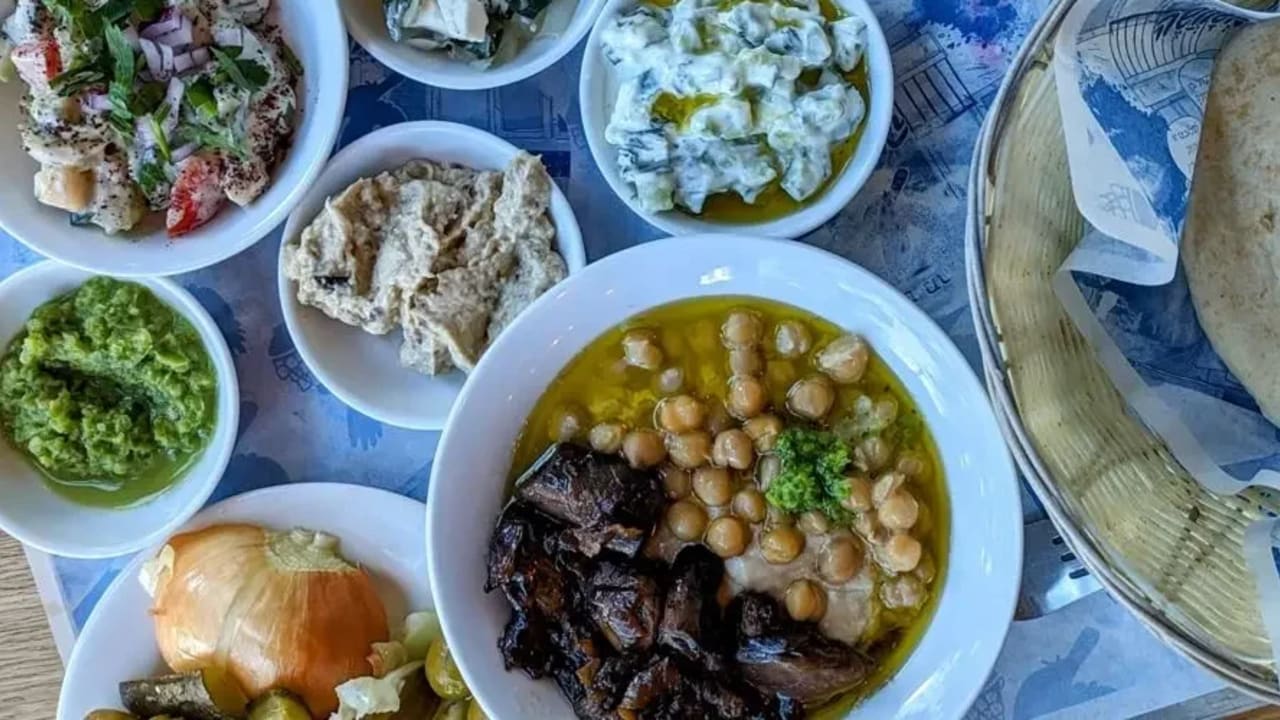Jerusalem Post
ByDR. MAYA ROSMAN
The Mediterranean diet ranks first in terms of health in almost every global ranking for decades.
People who follow the Mediterranean diet succeed best in losing weight, and it is also considered a diet that reduces the risk of heart disease, prolongs life, delays aging processes, and lowers the risk of diabetes, cancer, as well as Alzheimer’s and Parkinson’s.
What is Mediterranean food
The Mediterranean includes Italy and Italian food, Spain and Spanish food, Morocco and Moroccan food, French food, Greek food. Israeli food.
What does the Mediterranean diet include that prolongs life and reduces disease?
In my opinion, it’s simply a definition that includes several components that happen to be found mainly in Greek food:
Plenty of fresh vegetables and fruits, mainly tomatoes and leafy green vegetables.
Plenty of fish instead of other meats, at least five times a week.
Red wine.
Quality olive oil on a daily basis, and olives.
Yogurt, labneh, and hard cheeses, but relatively little dairy.
Use of natural ingredients, with almost no processed foods.
Health benefits
Fresh fruits and vegetables contain a large amount of vitamins and antioxidants that neutralize harmful substances entering the body and prevent many diseases. Vegetables and fruits are also rich in dietary fiber, which contributes to gut health, long-lasting satiety, and reduced consumption of calorie-dense foods, which helps maintain a healthy weight.
The amount of dietary fiber in the Mediterranean diet is 30% higher compared to a Western diet.
The tomato is the vegetable that most characterizes the Mediterranean diet. It is rich in lycopene, an antioxidant that reduces the risk of prostate cancer and other diseases. This antioxidant is also readily available to the body in tomato paste, which is common in Italian cuisine in pasta and pizza sauces.
Sea fish are rich in omega-3 fatty acids, which reduce the risk of inflammation and heart disease. The Mediterranean diet is characterized by the fact that the amount of this acid is equal to that of another fatty acid – omega-6. In the Western diet, there is ten times more omega-6, which increases chronic diseases, cancer, and mental imbalance.
Moderate consumption of red wine reduces the risk of diabetes, heart disease, and stroke. The amount of polyphenols – the active compounds in wine – depends on the type of grapes and is higher in regions with more sunlight.
Olive oil is almost always cold-pressed, preserving its nutritional properties. It is rich in a fatty acid called “oleic,” which lowers bad cholesterol and thus helps prevent atherosclerosis. Olive oil is also rich in vitamin E, an antioxidant that slows aging processes. Contrary to the myth, olive oil is heat-resistant and does not produce toxic substances even in short frying, such as for an omelet.
Yogurt and labneh contain good probiotic bacteria, protein, and calcium.
Processed foods, on the other hand, are low in antioxidants and vitamins, low in dietary fiber, and may contain empty carbohydrates (white flour, white sugar), a lot of salt, industrial fats, and trans fats. Such food increases inflammation in the body and the risk of all existing diseases. All the active components in such a diet work better together than each component separately – and this is another key to its health success.
Eating habits
Interestingly, in addition to the diet itself, eating habits in Mediterranean countries also have a tremendous impact on health. One of the most prominent habits associated with the Mediterranean diet is slow eating – good chewing and dedicating time to a meal.
When food is well-chewed, it eases the digestive process, and when eating slowly, it allows the feeling of fullness to appear during the meal, leading to lower food and calorie consumption, better regulation of blood sugar levels, and reduced risk of obesity and other diseases.
Muesli (credit: SHUTTERSTOCK)
Daily menu
The Mediterranean diet is based on plenty of vegetables and fruits, whole grains, legumes, olive oil, fish, low-fat dairy products, and very little processed food.
On a typical day in such a menu, you can:
Start the morning with yogurt, natural granola, and sliced fruit, or a slice of whole-grain bread with goat cheese and tomato.
At lunch: A large salad with grilled fish, a drizzle of olive oil, and on the side, quinoa or bulgur.
In the afternoon: A handful of almonds or a fruit.
In the evening: A vegetable salad with walnuts or avocado, a slice of whole-grain bread, labneh or baked fish, and a small glass of red wine (if desired).
You can also eat eggs, avocado, almonds, peanuts, and nuts, tahini, and fatty fish like salmon and sardines. All are good sources of essential fats.
What’s less recommended? Processed foods, large amounts of red meat, sweetened beverages, cakes, pastries with margarine, snacks, and fast food.
The principle is not a total ban but balance: Most of the food should be natural, colorful, simple, and as close to its source as possible.
Why is it consistently successful in diet rankings? Simply because it’s easy to stick to. You’re not hungry, it’s not very different from “regular” eating, you don’t give up life’s pleasures – you just focus on health, not on a drastic change that works only for a short time.
For Dr. Maya Rosman’s course: How to improve health and lose weight sensibly and reasonably – click here.













